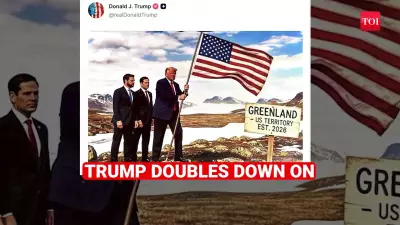
In a significant diplomatic development that underscores the complex realities of global energy politics, India has thrown its weight behind Hungary's continued reliance on Russian energy supplies. This strategic positioning comes amid ongoing European Union sanctions against Moscow, creating fresh fault lines in international relations.
Energy Pragmatism Over Political Pressure
New Delhi's support for Budapest's energy requirements reflects a pragmatic approach to international relations, where national energy security often trumps political alignment. The Indian stance acknowledges Hungary's unique position as a landlocked nation heavily dependent on Russian energy infrastructure.
This diplomatic maneuver demonstrates India's growing confidence in navigating complex global power dynamics, positioning itself as a voice for nations seeking to balance international pressure with domestic necessities.
Trump's Nobel Disappointment Resurfaces
Meanwhile, former US President Donald Trump has once again expressed his discontent over not receiving the Nobel Peace Prize. The billionaire politician's repeated mentions of this perceived oversight have become a recurring theme in his public statements, highlighting his continued focus on international recognition and legacy.
Trump's vocal disappointment contrasts sharply with the quiet diplomatic work happening between nations like India and Hungary, showcasing different approaches to international prestige and influence.
Geopolitical Implications
The India-Hungary energy understanding represents several key developments in global politics:
- Multipolar World Order: Nations are increasingly making independent decisions based on national interest rather than bloc politics
- Energy Diplomacy: Energy security continues to be a primary driver of foreign policy decisions
- Strategic Autonomy: Countries like India are asserting their right to independent foreign policy positions
- Sanction Realities: The practical limitations of international sanctions are becoming increasingly apparent
The Bigger Picture
This development occurs against the backdrop of ongoing global energy market restructuring and shifting political alliances. While Western nations continue to press for broader isolation of Russia, many countries in Asia, Africa, and even within Europe itself are taking more nuanced positions based on their specific economic and energy requirements.
India's support for Hungary's energy needs signals a new phase in international diplomacy, where emerging powers are increasingly comfortable charting independent courses that reflect their national interests and strategic calculations.





